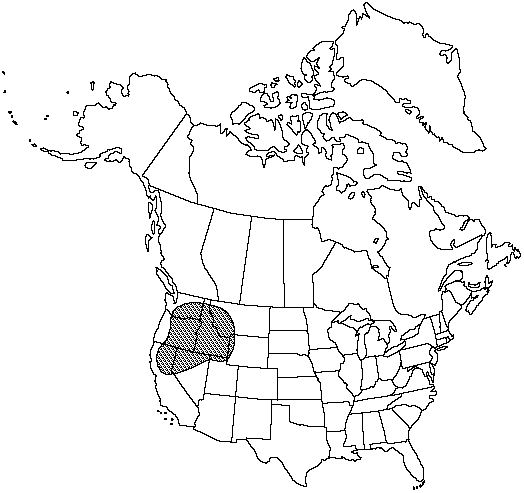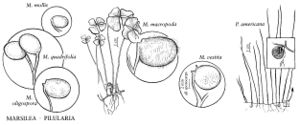Plants forming dense clones. Roots arising at nodes. Petioles 3.1–5.7 cm, sparsely pubescent. Pinnae 6–15 × 5–14 mm, pilose. Sporocarp stalks erect, unbranched, attached at base of petiole, sometimes bent near apex, 5–10 mm. Sporocarps nodding, 5–6 × 3.6–4 mm, 1.5 mm thick, ovate in lateral view, covered with long straight hairs when young but eventually glabrate; raphe 0.8–1 mm, proximal tooth 0.2–0.6 mm, curved away from sporocarp, distal tooth up to 0.4 mm, broad, blunt or absent. Sori 14–20.
Phenology: Sporocarps produced summer–fall (Jun–Oct).
Habitat: Around ponds and marshes, in wet depressions in sagebrush and less commonly on river margins
Elevation: 700–2400 m
Distribution

Calif., Idaho, Mont., Nev., Oreg., Utah, Wash., Wyo.
Discussion
Marsilea oligospora recently has been resegregated from M. vestita (D. M. Johnson 1986), from which it differs consistently in its nodding sporocarps that lack a pronounced distal tooth and its pilose leaves and stems. Where their ranges overlap, M. oligospora also has longer sporocarp stalks than does M. vestita. Plants of this species were recently grown from spores 100 years old (D. M. Johnson 1985).
Selected References
None.
